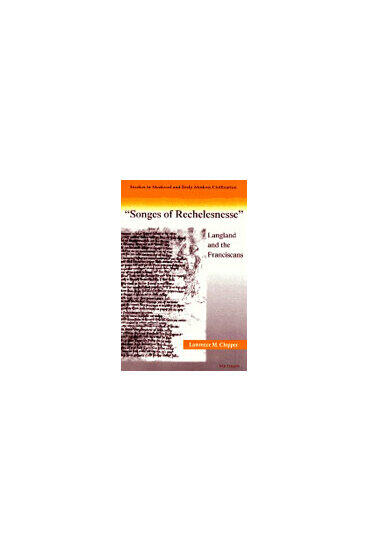"Songes of Rechelesnesse"
Langland and the Franciscans
Sketches Piers Plowman's reformist agenda for the Franciscan friars
Description
William Langland's Piers Plowman provides a highly charged picture of England near the end of the fourteenth century, a time of political, religious, and moral crises. The period in which Langland wrote was volatile and full of colorful and contentious people: Edward III, Richard II, Chaucer, Wyclif--and Langland. In "Songes of Rechelesnesse," Lawrence M. Clopper presents the voice of this powerful disputant who lived in a period marked by dissent and discontent.
In the late Middle Ages, Franciscan friars had a significant impact on all levels of society.
But because of the apparent discrepancy between the poverty the Franciscans claimed and the life they lived, a large body of antifraternal literature arose, including, supposedly, Piers Plowman. Since the sixteenth century, when it was first put into print, Piers Plowman has been understood to be a proto-Protestant work that revealed the failures of the medieval clergy, but especially of the mendicant orders. In "Songes of Rechelesnesse," Clopper establishes the presence of a Franciscan reformist position in Piers Plowman.
Clopper maintains that the poem articulates a reformist agenda, presenting the internal Franciscan debate, in a bid to return the order to its initial foundation. Clopper believes that Langland is deeply imbued with a Franciscan mentality that reaches deep into the structure of the poem. It manifests itself at the level of the alliterative long line in his exemplarist poetics and is the source of his imagery and politics. In short Clopper identifies Franciscanism as holding the poem together.
"Songes of Rechelesnesse" is a historical, political, and religious history of late fourteenth-century England. It will be of interest to literary scholars, historians of the late Middle Ages, and scholars in religious studies.
Lawrence M. Clopper is Director, Medieval Studies Institute, and Professor of English, Indiana University.

